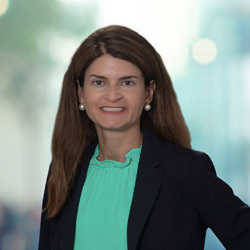- Posts by Tara W. Kuchar
 Partner
PartnerTara W. Kuchar maintains a diverse law practice. She regularly defends nursing homes and assisted living facilities, premises and manufacturers in products liability claims, and employers confronting allegations of wrongful ...


Summarizes key features of Illinois’ proposed Senate Bill 328, which expands general personal jurisdiction for out-of-state businesses doing business in the state.


Summarizes provisions of Illinois House Bill 2474 expanding protections for residents of long-term care facilities against retaliatory acts. Includes list of specific protected activities, residents’ remedies, and facility’s adherence requirements.

Analyzes U.S. Supreme Court’s decision to change how employers interpret undue hardship when evaluating employee workplace religious accommodation requests.

Discusses terms of Illinois’ Paid Leave for All Workers Act, including who’s covered, how to comply, and consequences for non-compliance.

Grauer v. Clare Oaks, et al, 2019 IL App (1st) 180835, is noteworthy to all counsel who regularly encounter fee-shifting statutes in their practice. Grauer was borne out of a verdict against a nursing home, but the court’s analysis as to the reasonableness of attorney’s fees and what constitutes “costs” in the context of the Illinois Nursing Home Care Act is important to all practitioners.
The Nursing Home Act provides that “the licensee shall pay the actual damages and costs and attorney’s fees to a facility resident whose rights” under the Act are violated. 210 ILCS ...

Illinois’ former eavesdropping law was unconstitutional because it was too broad to protect the fundamental interest in conversational privacy. When the former law was held unconstitutional, many wondered how the General Assembly would respond. By enacting this new law on December 30, 2014, Illinois made clear that it was going to stay the course and protect its citizens’ private conversation.
The cornerstone of Illinois’ eavesdropping law is the policy that the people of Illinois should not fear that what they believe to be private conversations are being recorded. That ...

